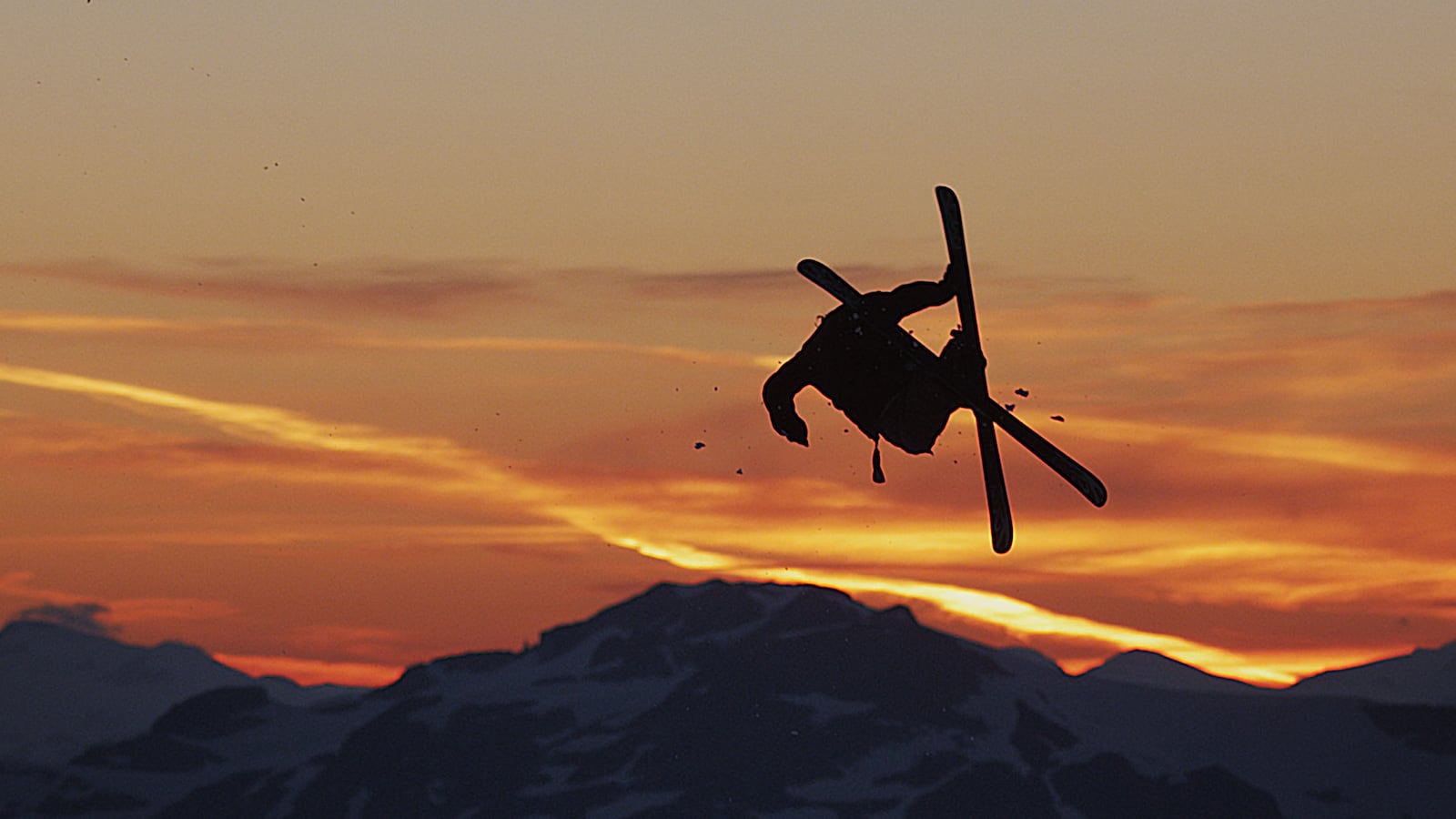Call it the GoPro generation, or maybe the X Games effect: people pushing the envelope of rational thought for a few moments of adrenaline soaked ecstasy.
Whether it’s climbing the Dawn Wall, jumping out of a helicopter on a skateboard, or being towed on a surfboard into a 60-plus foot wall of water at Mavericks, a couple of generations of brave men and women have dedicated their lives to finding those few short moments of exultation and escape. A new film, The Search for Freedom, traces the roots of extreme sports, and the motivations behind them, from the original misfit outlaws of board sports, mountain biking, and climbing to their glammed-out modern day professional incarnations.
Beautifully filmed and edited, The Search for Freedom looks to the past, present, and future of not only those who risk it all but also for the everyday enthusiasts, all of whom are looking for a moment or two unplugged from an increasingly connected society. Far more than showcasing just adrenalin porn, it digs into the reasons a growing number of people engage in such behaviors, and in the process breaks them down in a way that any viewer can appreciate.
“For me all adventure is a metaphor for a journey inside yourself, getting to know the darkest, remotest corners of your own psyche. And sometimes that means going way outside your own comfort zone.”
—Glenn Singleman, altitude enthusiast and doctor.
We caught up with the film’s producer, director, and writer, Jon Long, to discuss his motivation and inspiration for this project, and how to handle it when someone pushes just a little too far in pursuit of what they love.
So why make this film? Why now?
When I started making action sport films, there weren’t that many people doing them, just a handful. I just saw these changes in action sports, how much the whole culture grew (to) became a cultural phenomenon, where it’s just so much embedded as part of our mainstream culture. When I started out, and before that, it was really a fringe activity, and I thought that was a compelling story to tell.
Do you yourself partake in these sports?
Yeah, I grew up skiing and snowboarding and stuff, I’ve lived in the mountains most of my life. When I started out I just wanted to try and merge my love of doing those sports with work. I actually started doing distribution for Warren Miller films and other sports films and after about a year of that I got into making films myself .
You interviewed one of the producers of the X-Games. Do you find that the level of commercialization and mainstreaming in activities like that depletes from the soulful or spiritual aspect of the sports in any way?
I don’t really think it does, because it creates awareness. And I think a lot of that awareness translates to people doing these sports. I mean, now skateboarding is everywhere you go. 99.99 percent of the people doing these sports are doing them for the specific experience; they’re not doing it to become professional. And that’s what I tried to show in the movie. This whole evolution happened, and so many things changed, but in the end nothing really changed. There’s a bunch of industry and stuff now, but for almost everyone who does it, they’re doing it for the same experience as the people that started doing it 50 or 60 years ago. To connect to the moment, and focus, and really play and enjoy the experience. That’s the thing that matters the most, and all the other stuff is just periphery.
As these sports become more accessible and more and more people get into them, new generations push the fringe further and further, making it more extreme. What do you think is the ultimate end of this evolution? Can the human body only take things so far, and then that’s it?
People keep saying that. [Pro skateboarder] Danny Way, who has been pushing the envelope for such a long time, the way he describes it is the “land of infinite possibilities.” Even in the X-Games now, or the last Winter Olympics, if you saw what the snowboarders or skiers were doing, it just keeps progressing. The tricks they are doing are so technical; I think there’s room for adding even more technical aspects to tricks. As far as the really risky stuff, big mountain stuff, I think people are pushing it hard, and it’s hard to imagine that people can go further than what they’re doing. When you’re deep in Alaska and half the slope starts sliding in an avalanche, you can’t outrun it. But now they have parachutes, so they pull the shoot and just start flying. So who knows what is next?
As we talk about pushing boundaries, there are obviously consequences to that. You had Shane McConkey in the film, and towards the end Dean Potter jumping off the wall and pulling a parachute. But you don’t mention that both of them are no longer with us, and in fact died pushing that edge. Do you think there’s an inherent responsibility to tell viewers that people have risked it all, and paid with their lives, in the pursuit of these passions?
So that’s the turning point of the film. Danny Way says, “There’s a red line where you’ve got to really look inside, where you’re risking injury or possible death, and you have to ask yourself, do you keep on?”
But you don’t say, “Here’s Dean Potter, who dies in this way.” Was that a conscious decision? Was it just to keep the vibe rolling with the film, or are they too fringe for a film aimed at the mainstream? Because these sports hold a level of inherent calculated risk at every level, it’s part of their allure.
We address it in a more subtle way. We don’t want to pass judgment; it’s more allowing the audience to see it. The story we told, and the arc we tried to cover, is that you do this, and you progress. The more you progress, the more risks you’re gonna take, the more risks you take, the fear is gonna come in, and then you have to ask yourself, “Is it gonna be worth it?” We tried to follow a metaphorical story that shows people on all levels doing it for just the experience, saying, “This is enough for me.” But then we show people pushing the red line, and when you’re pushing the red line, that is a personal decision you make. Dean Potter, Shane McConkey, they understood the consequence of that. They are the people, the very, very few people, like Transworld editor Rob Campbell said in the movie, “There’s a very small fringe of society that really pushes it, and these are the one in a million people who are really pushing it, and they are the experts.” They know what they’re doing. They practice to get to that point where, for them, they feel completely within their realm, but they also understand the risk involved.
“You get to the summit am there’s nothing up there it’s just flat! There’s nothing. There’s nobody meeting you, there’s no wise man telling you the secret of life. You realize ‘you know what? It’s all about the process.’”
—Yvonn Chouinard, Patagonia founder & pioneering rock climber.
And after the turning point where Dean Potter falls, we come back to the conclusion of our film, where [dirt bike jumper] Robbie Maddison talks about the fear for him. Here’s a guy who jumps 400 feet, and then you come to, “Why do we really do this?” We just want that connection you get when you’re doing something you’re really passionate about, and you’re completely focused on that experience. That’s what it’s all about. And that’s the way it is for almost everybody. This movie is about trying to create an emotive experience for an audience so they can see and understand some of these people that push it so hard, and see the beauty in the experience. There’s not a lot of information. I tried to create it so the film felt almost like the experience of doing it.
The Search for Freedom premieres nationally in a special one-day theatrical release on June 10. Click here for locations.






